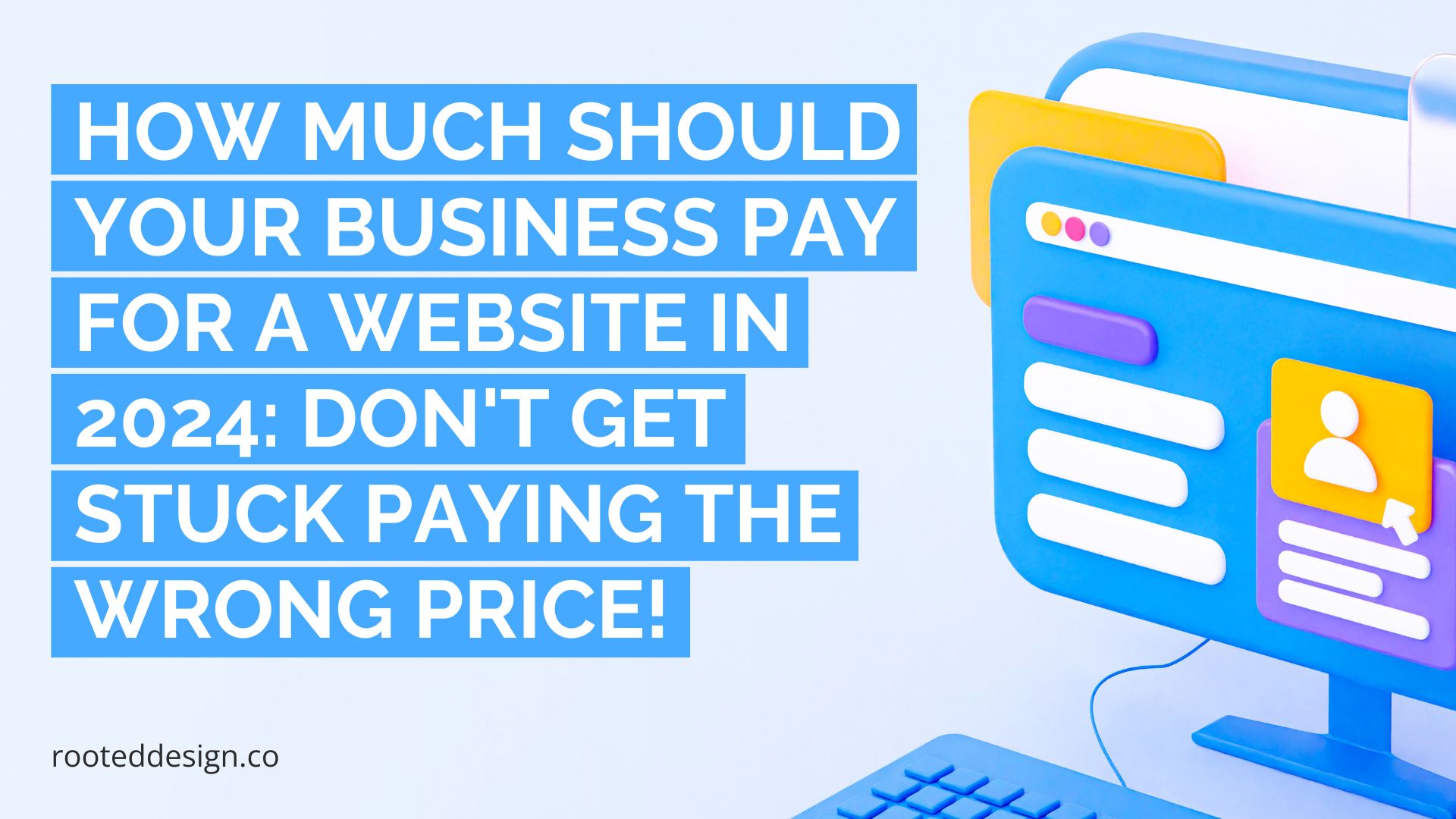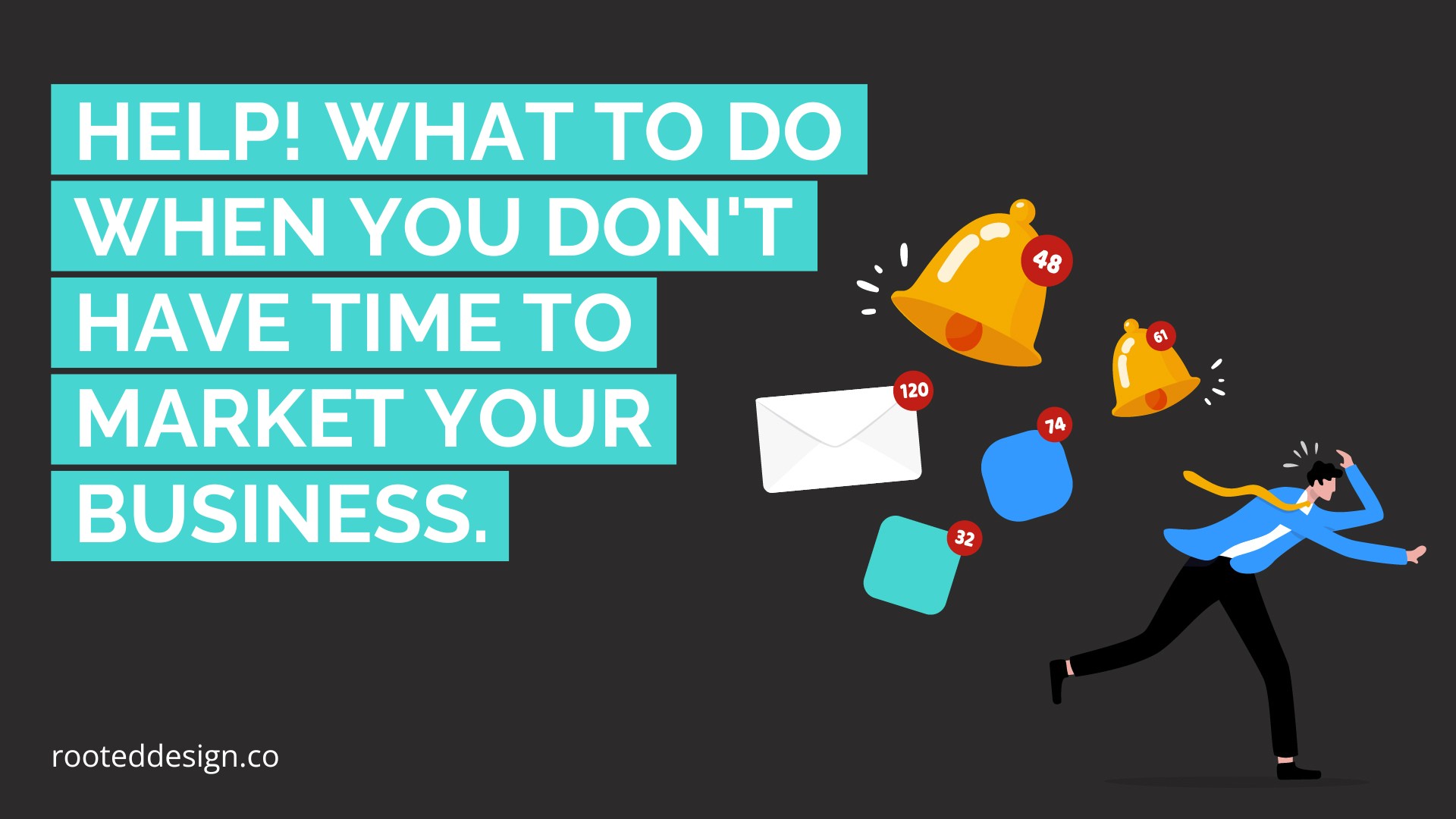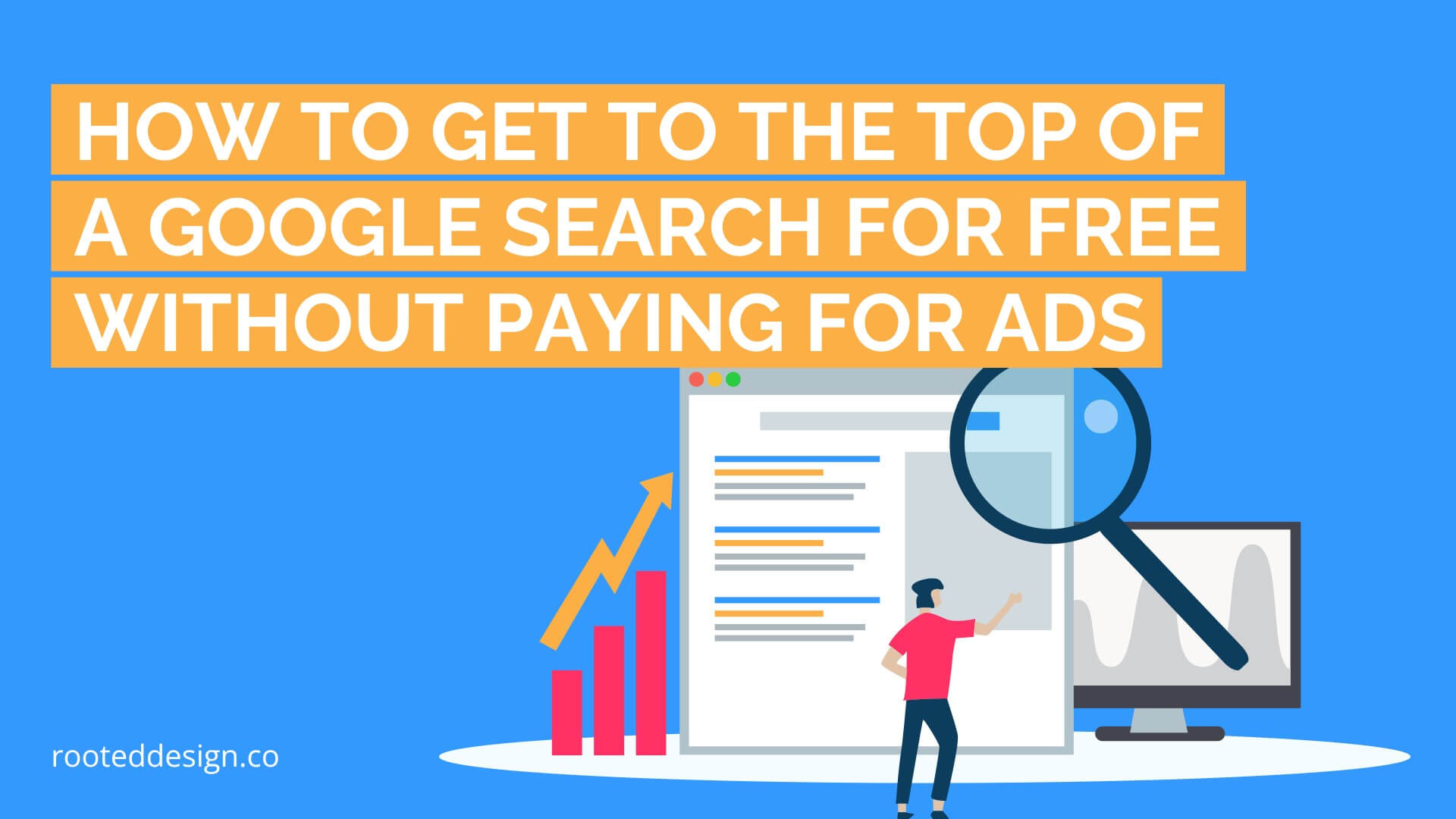Think your website is just an online brochure? Think again. In 2024, your website is your digital storefront, marketing powerhouse, and brand ambassador, all rolled into one. But if it’s outdated, clunky, or invisible on search engines, it’s scaring away customers faster than a free trial with an auto-renewal.
Sound familiar? It’s time to consider a website upgrade. But before you get sticker shock, let’s talk budgeting for success.
We’ll unveil the secrets to:
- Avoiding overpriced pitfalls: Ditch the website horror stories and discover transparent pricing for everything from design to development.
- Building a website that converts: No more pretty pixels with zero sales. We’ll show you how to invest in features that turn visitors into customers.
- Staying ahead of the curve: Don’t get left behind! We’ll explore the latest website trends and how they can boost your brand.
Here’s a sneak peek at what you’ll find:
- The truth about initial costs: Hosting, domain, design – we’ll break down every expense and show you how to get the most bang for your buck.
- Beyond the basics: Security, content creation, custom features – we’ll cover it all, so you can plan for a website that truly works for you.
- Don’t forget the ongoing grind: Updates, marketing, SEO – we’ll demystify these costs and help you budget for long-term success.
Ready to transform your website from a dud to a lead-generating machine? This guide is your roadmap to smart website budgeting in 2024. Let’s build a website that attracts, engages, and converts – for a budget that makes you smile.
Don’t let your website hold your business back. What are you waiting for, let’s dive in.
Factors to Consider When Budgeting for Website Costs
When budgeting for a new website in 2024, it’s crucial that you aren’t just looking for the cheapest deal – you are investing in your business’s future.
Here’s the truth: website costs can vary wildly depending on what you actually need.
So, what affects the price tag?:
- Fancy looks vs. functionality: Does your website need to be a dazzling design masterpiece, or a conversion machine with custom features? Knowing your priorities helps you avoid overspending on bells and whistles.
- DIY vs. pro help: Can you handle building it yourself using website builders or WordPress? Or do you need the expertise of a web designer or agency? Each option comes with its own cost and benefit.
- Location, location, location: Just like rent, developer rates can differ depending on where they’re based. Consider freelance options, web designers, or full-blown agencies – each has its pros and cons (and price tag).
The complexity of the design and the requirement for custom functionality play significant roles in development costs. High-quality websites may be more affordable than anticipated, with options under $10,000 available when leveraging platforms like WordPress with premium themes and plugins.
To keep expenses in check, consider using website builders or self-hosting with WordPress to reduce costs. Maintenance costs, such as for hosting and domain registration, should be carefully planned to avoid unexpected expenses.
Additionally, research is key. Understand your audience and analyze competitors through SEO keywords to ensure your online presence is effective and your website aligns with your marketing strategies.
Lastly, the location and type of development team are pivotal. Cost of living differences can affect hourly rates, and the choice between freelance developers, a professional web designer, or a design agency will influence the final bill.
Remember, while the cheapest option may seem attractive, investing in advanced features, uncompromised security, and professional web development can save on ongoing costs and maintenance in the long run.
Initial Costs
Initial website development costs are the foundations of establishing your online presence and can vary significantly based on your specific needs. For a basic website with essential features, you could expect to shell out between $300 to $5,000. This price range depends on the services and features you choose during initial development, such as the website’s complexity, design quality, and whether you incorporate custom functionalities. It is also important to account for the fact that maintenance and marketing can dramatically increase the total cost of ownership over time, sometimes doubling or even tripling the initial development price on an annual basis.
Freelance platforms like Upwork can offer cost-effective solutions, with a breadth of expertise available at competitive rates that may suit your budget restrictions better than traditional agencies. Meanwhile, for small businesses, you might be looking at an initial investment of around $200 to $300 for the website itself, plus ongoing maintenance costs that could range from $5 to $50 per month.
Those seeking a bespoke website can gear up for a higher starting point, typically around $10,000, with the knowledge that over time, ongoing domain, hosting, support, and maintenance costs can stabilize after the initial launch phase.
Hosting and Domain
When evaluating the costs associated with hosting and domain registration, remember that these are essential to keep your website accessible to your audience. A domain name – your digital address on the internet – will usually cost around $14.99 per year. Concurrently, web hosting – the service that allows your website to be accessed over the internet – generally runs at about $7.99 per month.
Some website builder services offer the first year’s domain name for free, potentially reducing upfront costs. Nevertheless, hosting is a distinct expense, albeit some packages bundle it with other services for convenience. To maintain a functioning website, investing in both a domain and hosting is non-negotiable.
Design Agency or Professional Web Designer Fees
Determining whether to go with a web design agency or a professional web designer is a crucial decision that will significantly impact your overall costs. Agencies typically charge anywhere from $10,000 to $50,000, depending on your project’s complexity and scope. For a basic custom design, you may be looking at fees ranging from $15,000 to $30,000, with more elaborate and advanced websites pushing the figure to between $40,000 to $75,000.
On the other hand, freelance web designers can offer a more variable rate, often around $60 to $75 per hour. While agencies might charge a premium, their vast experience and high-quality work often justify the investment.
Content Creation and Custom Functionality
The content-first approach to website development prioritizes the creation and optimization of high-quality, SEO-friendly content that performs well on search engines. As content is a major driver of user engagement and search engine rankings, investing in content creation is crucial.
Custom functionality, such as specialized navigation bars, shopping carts, and payment processing systems, will contribute to the website’s final bill. Additionally, integrating extra functionalities like a blog, forums, or multimedia features can significantly enhance user experience and bolster the value proposition of your website. However, it’s vital to balance the benefits of these additional features with their associated costs.
Security Features and Maintenance Costs
Security is non-negotiable in the digital world, and proper security measures are paramount to protect against data breaches and cyber-attacks. Failing to invest in robust security features can not only compromise sensitive data but also harm your reputation and lead to substantial financial penalties.
Maintenance is another critical factor, encompassing hosting, domain renewal, SSL certificates, plugin licenses, cloud services, and more. Depending on the complexity of your website, maintenance costs can vary, but it is essential for ensuring the longevity and performance of your site, including speed, uptime, and protection. While maintenance costs are ongoing, they serve as a necessary investment in the health and security of your online presence.
Ongoing Costs
Keeping your website in prime condition after its initial launch involves a continuous financial commitment. Ongoing maintenance costs vary widely from $15 to $1000 per month, with the website’s size and the level of hosting being predominant factors in this variation. For small websites requiring minimal tweaks, a budget of about $100 a month should suffice. In contrast, larger corporations could find themselves investing between $2500 and $10,000 monthly to ensure their powerful online tools remain efficient and free of technical hitches. It is critical to remember that these ongoing costs cover updates, the implementation of new functionalities, and the resolution of any technical problems that may crop up after your website goes live.
To prevent your investment from becoming an unjustifiable expense, bear in mind that sustained and strategic website marketing is integral to realizing the expected outcomes from such costs. Without proper marketing, even the most well-maintained websites might not reach their full potential in attracting and engaging with the desired audience.
Content Management and Updates
Updating and managing website content is an ongoing process that’s crucial for keeping your site relevant and engaging. Content management systems like WordPress can simplify this task by providing access to over 11,700 customizable themes, allowing for swift and cost-efficient changes to your website’s design. Redesign costs, as well as content management services, can vary considerably based on aspects like website scale and design intricacy. Thus, a meticulous approach is recommended to ensure these investments deliver maximum value.
Automating content distribution and data synchronization through services like Zapier, starting at $20 a month, can significantly elevate your content management strategy. Regular website maintenance tasks such as renewing domains and hosting, updating content, monitoring performance, and managing email services must not be overlooked, as these activities collectively sustain a website’s functionality and performance. Furthermore, keeping software up-to-date for performance, security, and functionality is pivotal to maintain your site’s efficacy, and platforms like WordPress facilitate these critical updates.
Marketing and SEO Maintenance
SEO and marketing are cornerstones of a healthy online presence, with SEO optimizing your website to rank higher on search engine results pages and marketing publicizing your brand through various channels. Depending on the website’s scope, monthly SEO and marketing costs can range from $2,000 to upwards of $10,000. Remember, even straightforward websites can convert into formidable lead-generation tools if developed with a marketing focus.
To stay competitive online, SEO-friendly websites are indispensable components of any comprehensive digital marketing approach, linking businesses to customers right when they’re searching for related services or products. While basic SEO might come bundled within web builder packages, additional investment in more robust SEO tools and plugins could be necessary to fully optimize your site for search engines.
Advanced Functionalities and Additional Features
Incorporating advanced functionalities such as custom CMS frameworks, e-commerce capabilities, or sophisticated security solutions may require the expertise of professional web developers, thus impacting overall costs. Engaging a developer through platforms like Upwork may cost you $15 to $30 per hour, which provides a relatively flexible approach to pricing when adding these advanced features to your website.
Should you choose to upgrade your site with additional elements like interactive widgets, custom navigation bars, or advanced payment systems, these enhancements will not only contribute to the overall development cost but also improve the user experience and add value for visitors. Adopting a content-first strategy during your website’s redesign focuses on developing and refining high-performing content assets that can help boost search engine rankings and draw more traffic. Implementing advanced features and functionalities entails careful consideration of technical specifications to ensure a seamless user experience and to cater to specific content requirements effectively.
P.S. We’re not just throwing information your way. We’re a design agency that specializes in building websites that get results. If you’re feeling overwhelmed, we’re here to help!



